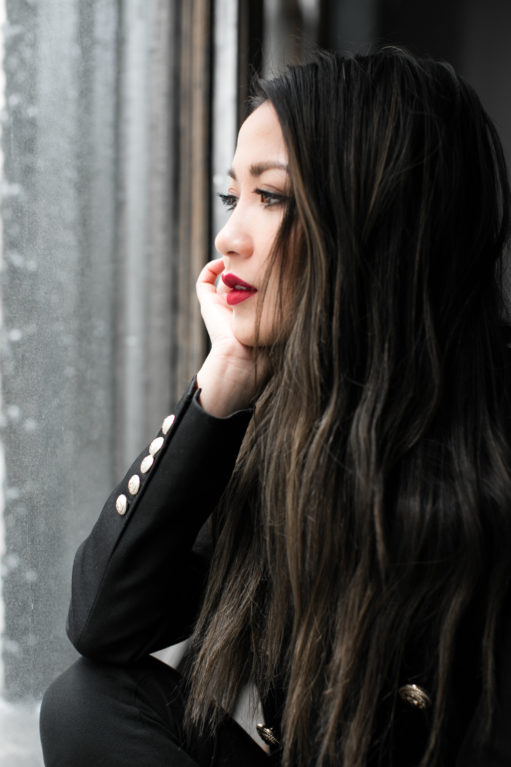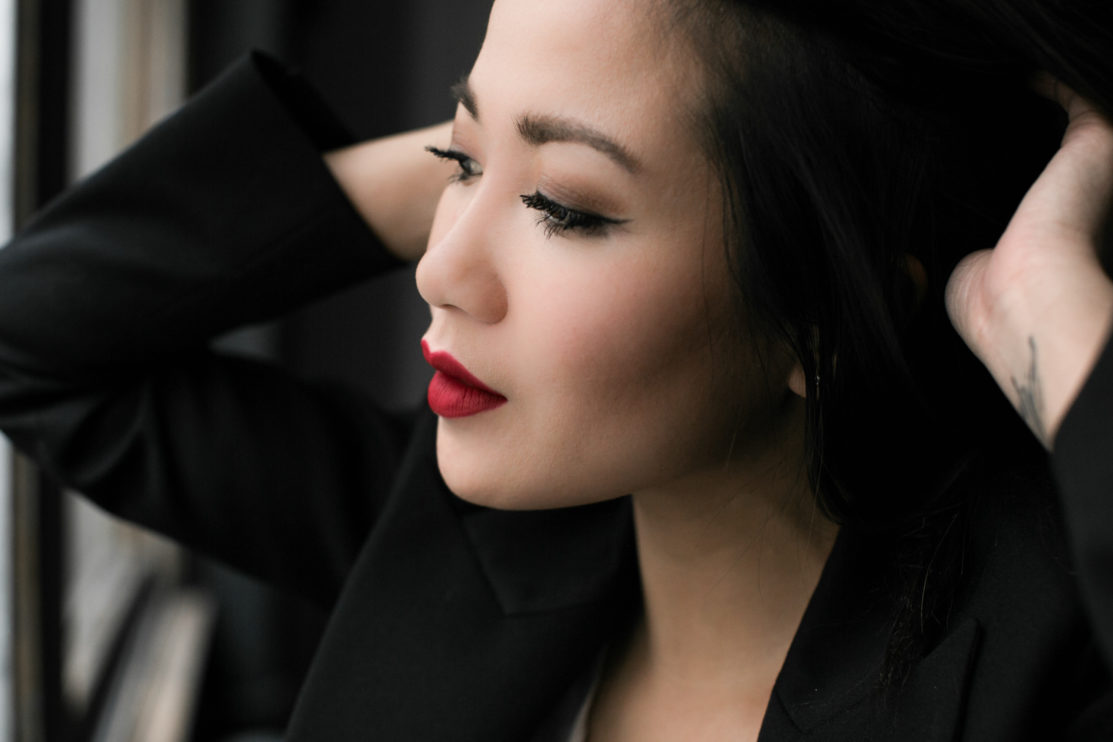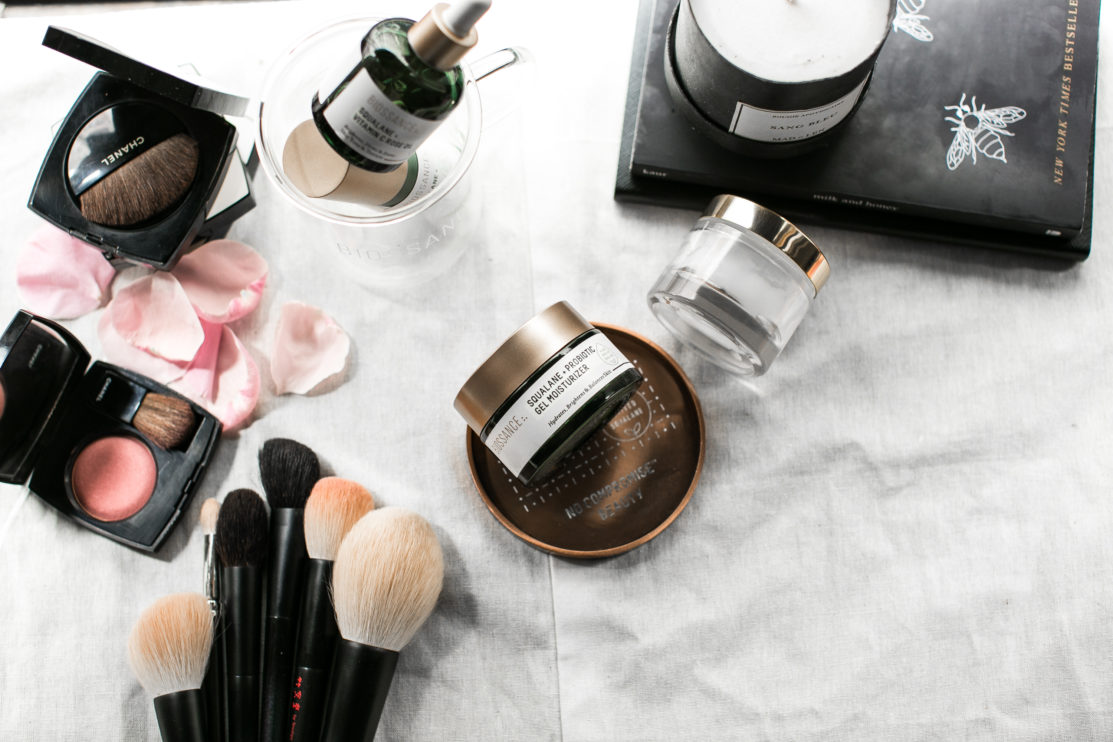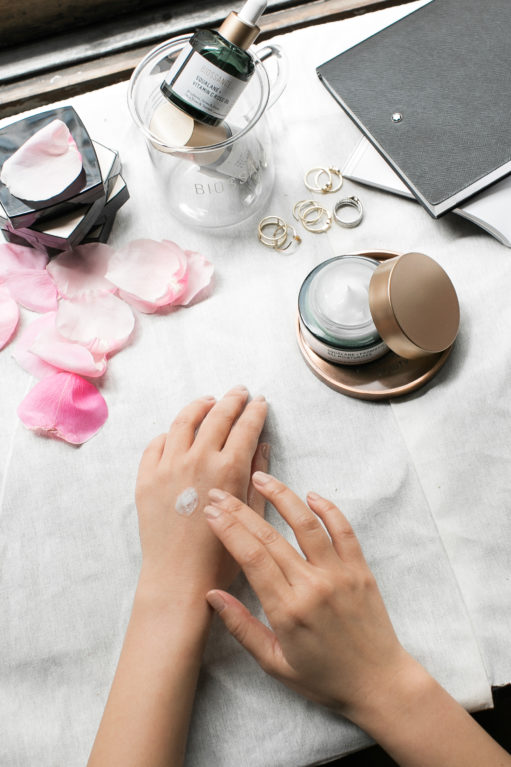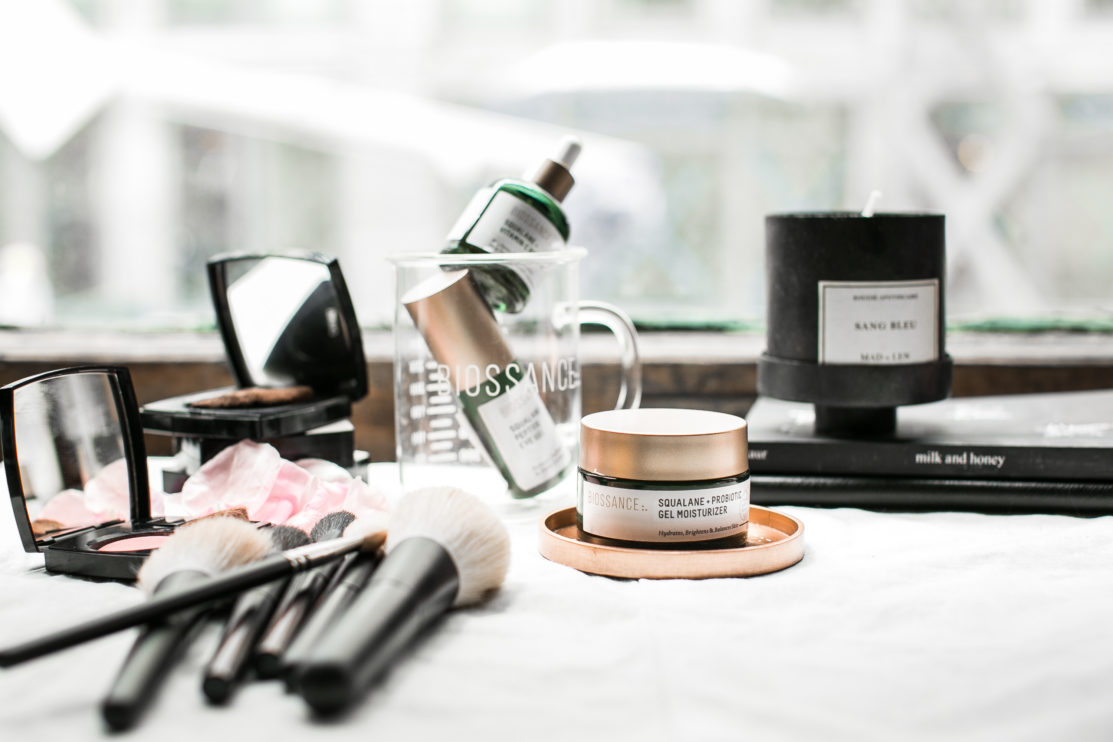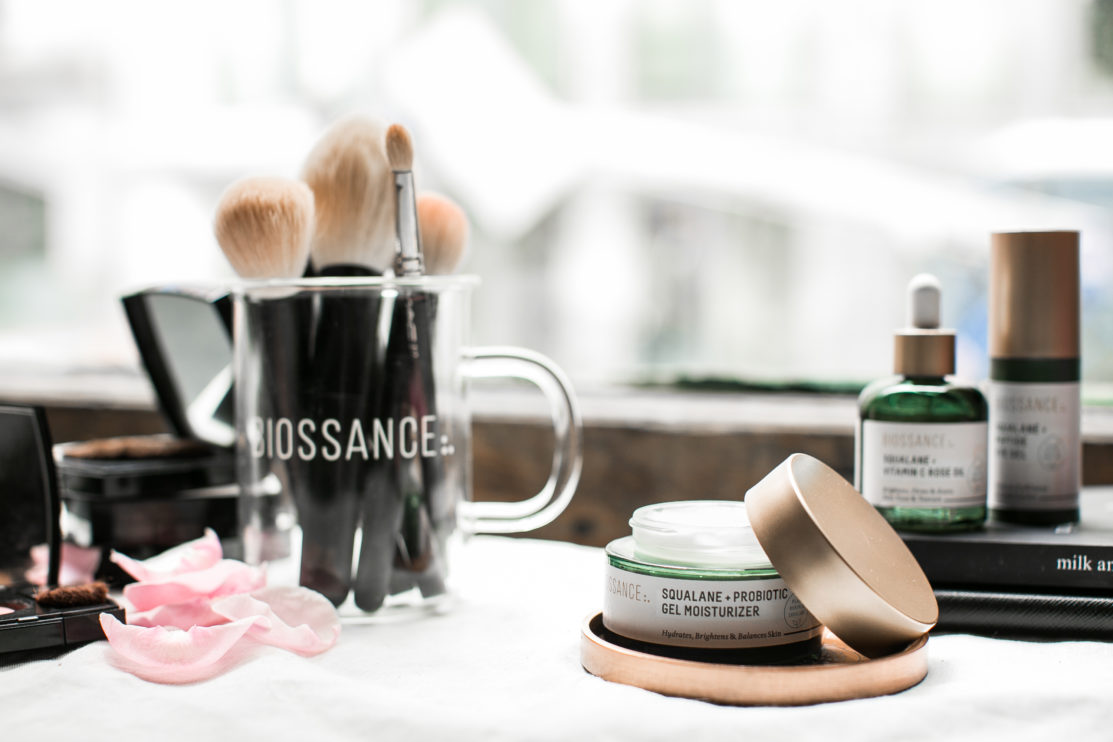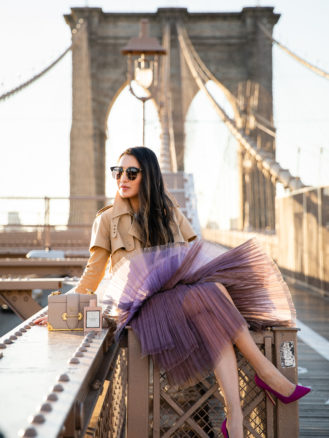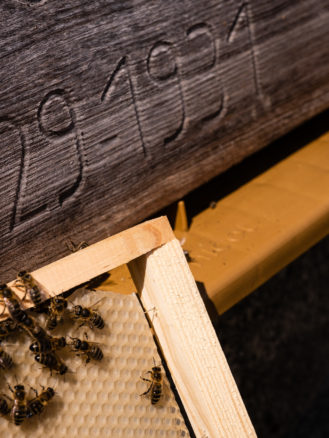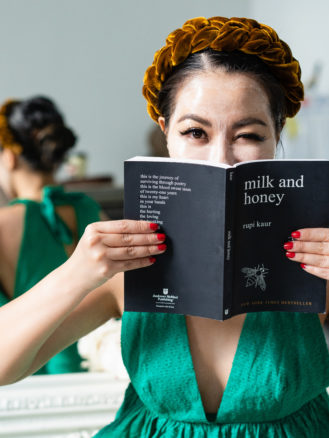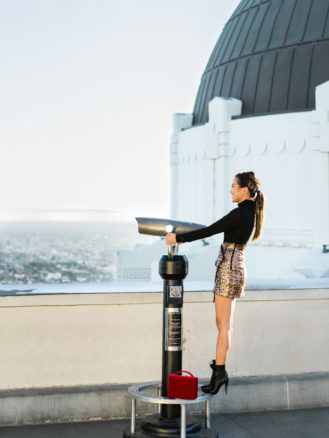Happy Monday everyone! Today is a long post, but there’s so much valuable information that I encourage you to stay if you can. Sit back (in my case curled up with my cat) with a glass of wine and enjoy! Sharing my favorite girl-boss look, best new beauty products, and in-depth conversations with a skincare expert!
Dependable and timeless… a power suit. It has the ability to summon the strength from within and equip the wearer with confidence and courage to face the challenges ahead. Moreover, the modern power suit does not have to be a traditional one. It can be a pairing of any of your favorite structured blazer with tailored pants (above is my favorite Gap slim pants with a Balmain blazer). What I love most about a power suit is that it’s personal and that the emotional-physical connection is real. I stand taller and walk more purposeful when I have my power suit on.
To me in terms of beauty… a great moisturizer is like a power suit. Since our skin barrier is the first line of defense, a great moisturizer can help us face environmental stressors (a power suit can help us feel empowered as we face social stressors). It protects us from harm, like pollution and chemicals, and helps keep the good stuff in, like moisture.
On our Skype call back in December, Biossance shared with me that they will add a moisturizer to their line in April. I was beyond excited! A few weeks later, I received a lab sample (the jar to the right) and have been using it for a few months now. It’s so amazing and effective that keeping it a secret was very hard at times! I kept telling my girlfriends… just wait, there’s a great moisturizer coming out in a few months! Since using it, I’ve notice that my skin appears more supple and that there’s an overall decrease in redness. The gel texture is light and very soothing the moment it hits the skin. I use the Squalane + Probiotic Gel Moisturizer after applying the Squalane + Vitamin C Rose Oil and Peptide Eye Gel every morning and night.
When I first learned about this moisturizer, my immediate question was… why probiotic? We know that our body needs probiotics, the good bacteria in order to flourish and be healthy. So does our skin. Probiotic helps strengthen our skin barrier to help restore moisture and combat against skin inflammation. What I find incredibly fascinating is that with daily use of the Squalane + Probiotic Gel Moisturizer, it’s clinically proven to reduce redness by 23% in 3 days, and appearance of mild rosacea by 43% in 3 days.
When it comes to skincare in general, I have loads of questions. In this case… why probiotic (answer above), what is squalane (after researching, answer here). In a broader sense… is not washing your face at night that bad, what age should we start using anti-aging products, etc. I had an open and honest conversation with Instagram readers (the post here) the other day and asked – if you can ask any question(s) to a skincare expert, what would it be? The questions were so good and incredibly interesting that I reached out to Biossance for help. Biossance was so kind and helpful! They reached out to Dr. Mona Sadeghpour, MD, FAAD, a leading dermatologist from Yale to help us with the answers.
Question from @mynachoe, @luseeyalu, @hilarycheungg, @shestaylored, @jessaohh – At what age should we start using anti-aging products?
It depends. The largest contributor to skin aging is the sun! Not only does it increase the risk for skin cancer but it degrades collagen, forms brown spots, and wrinkles. So the easiest and most inexpensive anti-aging product anyone can use is one that provides protection from the sun. The American Academy of Dermatology recommends products with SPF of 30 or higher. You also want to look for the word “broad-spectrum” which means that you are being protected against both the aging and the burning rays of the sun (UVA and UVB), both of which have been shown cause skin cancer. The earlier the start the better.
Question from @m_elodyyyy – Is it true that if I start applying anti-aging products too early that this will age my skin?
There are many categories of “anti-aging” products. Generally speaking, most anti-aging products focus on protecting against ultraviolet rays of the sun, soaking up damaging free-radicals (anti-oxidant products like vitamin C, vitamin E, green-tea, etc.), and/or stimulating collagen formation. Collagen is the major protein backbone of the skin that gives it structure, resilience and ultimately helps plump up the skin and smooth out wrinkles (retinoids are an example of topical agents that help stimulate collagen). The best way to protect our skin is to protect the healthy collagen that we currently have and to prevent future damage. Any and all of these products mentioned above do just that and and the earlier they are used the more damage is prevented. However, women must be cautious as some of these products are not recommended to be used during pregnancy or while breast-feeding (such as retinoids). You should always speak to your dermatologist for recommendations on products and to ensure the ones you are using are safe.
Question from @kellilam, @grace.yang18, @lailabrandon, @silvia_rutledge, @sumaiyastyle, @iiheartbeauty – What is the best way to treat and prevent dark spots/melasma?
This is a big question as there are different types and causes of dark spots. It’s probably no surprise that again the most important part of treatment and prevention of dark spots is sun protection! Dark spots (both in the case of melasma and sun-spots) are formed by deposition of melanin (pigment) in your skin, and pigment deposition is activated by ultraviolet light including the sun. In case of melasma, hormonal factors such as oral contraceptives or pregnancy may contribute to formation or exacerbation of the dark spots. You should always consult with a dermatologist for diagnosis and treatment of dark spots, as depending on the severity and cause different treatment modalities are available. But no matter what the cause, it is important to wear a sun-screen daily, including cloudy days, and even while you are driving. This is because windows of cars do not block sun’s UVA rays, which causes skin pigmentation and aging). It’s also common to find skin cancers on left side of the face, the side closest to the driver’s car window. My recommendations are to always chose a photo-protective product that you like wearing. A product that feels comfortable (not too oily, chalky, or thick) and one that feels cosmetically elegant to you. Because if you don’t like how it feels, you are not going to wear it regularly. Tinted sunscreens are my personal favorite, as they serve dual function in both protecting your skin from aging and adding a natural tint that helps even out skin tone and texture.
Question from @hadasugar – Is it a good idea to quit make up entirely? What would the lasting effects be on my skin?
Occasionally make-up can cause irritation or allergic reactions in the skin, or plug up oil glands, which can exacerbate acne. In case of allergic reactions, it’s best to stop make-up and consult with a dermatologist. In the case of acne-prone skin, it’s best to look for products that are labeled as “non-comedogenic,” meaning that they are less likely to plug up the oil glands in the skin. However, if you have a make-up regimen that you tolerate well there is no reason to give it up. In fact some foundations and powders have added sunscreen ingredients that help them serve as excellent and cosmetically elegant photo-protectants for the skin.
Question from @kwanyen77, @sheron.see, @aleubillus, @blogilates_mona_creative – What is the best way to keep my oily skin under control?
A good start would be regular cleansing of the face. For additional oil control, an affordable option that is available over the counter would be products containing salicylic acid. Salicylic acid is a unique type of hydroxy-acid that can penetrate the oil glands and help exfoliate the oily parts of the skin. It is available over the counter in 2% formulations or less, and can be found in forms of face wash or pads. Like most exfoliants, if you have sensitive skin you could experience dryness and irritation, so always be cautious with use and start slowly and can increase use as tolerated.
Question from @melissadlr_, @tanjapeic, @jamyan – How do I get rid of redness in the morning?
This is another condition that is best to speak to a professional about. Redness can either be a normal physiologic response, or caused by rosacea, broken blood vessels due to sun damage, or other underlying medical conditions.
First and foremost, thank you so much Biossance and Dr. Sadeghpour for your support and time! I love it when online communities come together! I hope you enjoyed this photo story, post, and Q&A! And as always, thank you so much for reading!
Thank you so much for reading!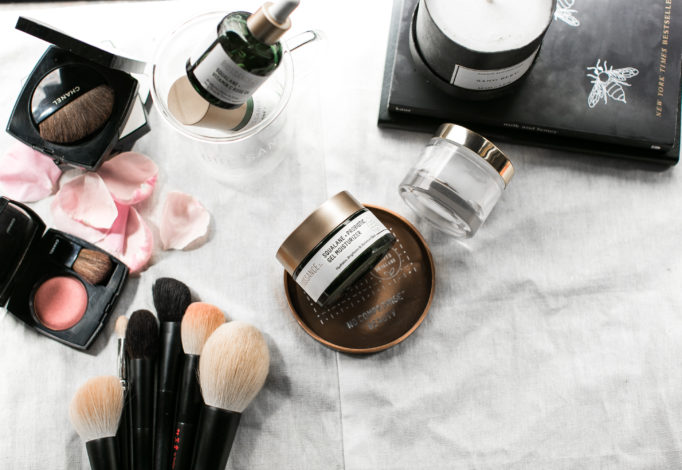
 April 17
April 17 





